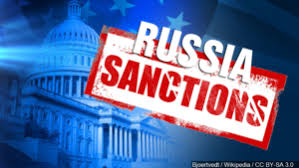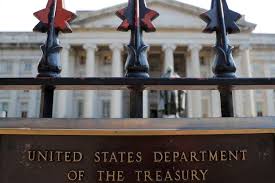OFAC Loses Exxon Sanctions Enforcement Case

In an interesting end of year decision, issued on December 31, 2019, a District Court in Dallas issued a rejected OFAC’s enforcement action against Exxon Corporation imposing a $2 million penalty for violation of the Russia Sanctions Program. (Copy of decision is here). OFAC suffered a rare rebuke after extensive litigation and it will be interesting to see if OFAC appeals the District Court’s decision.
Exxon challenged OFAC’s enforcement action for violation of the Russia Sanctions Program claiming that it did not receive fair notice from OFAC that its conduct would violate the Russia Sanctions Program.
Exxon has done business in Russia for over 20 years, and specifically with Rosneft, Russia’s largest oil and gas company. In 2014, and in several actions thereafter, OFAC issued regulations imposing Sectoral Sanctions against various entities in the finance, oil and gas, and defense industries. As part of this regime, OFAC designated Igor Sechin, the CEO of Rosneft as a prohibited person, a Specially Designated National or “SDN.” OFAC, however, did not place Rosneft as a prohibited party or SDN.

Following the imposition of the Russia Sanctions, Exxon proceeds to execute eight separate contracts with Rosneft. The first seven were completion deeds related to a parent agreement entered in 2013. The eight agreement ws an extension of an existing agreement initially executed in September 2013. Sechin, as the CEO and a representative of Rosneft, signed each of these contracts on May 23, 2014.
OFAC imposed a $2 million penalty based on the claim that Exxon violated the Russia Sanctions which prohibits th reeipt of services from a blocked individual.
The Court reviewed OFAC Guidance on the subject of whether a US company can engage in business with a non-blocked company that may include an owner or actor that is a prohibited party under OFAC regulations. Specific guidance on the topic raising serious compliance concerns was not issued until after Exxon executed the contracts with Rosneft and Sechin.
OFAC’s Frequently Asked Question (“FAQ”) 398 specifically states that “persons should be cautious in dealings with such a non-blocked entity to ensure that they are not, for example, dealing with a blocked person representing the non-blocked entity, such as entering into a contract that is signed by a blocked person.”
FAQ 400 states that “OFAC sanctions generally prohibit transactions involving, directly or indirectly, a blocked person . . . even if the blocked person is acting on behalf of a non-blocked entity . . . . U.s persons may not, for example, enter into contracts that are signed by a blocked individual.”

The Court ruled that OFAC did not provide Exxon with fair notice of its interpretation of the application of the Russia Sanctions to Exxon’s execution of the eight contracts with Rosneft in violation of the Due Process Clause of the Fifth Amendment. Due Process requires that laws “must give fair notice of conduct that is forbidden or required,” citing FCC v. Fox Television Stations, Inc. 567 U.S. 239, 253 (2012).
The Court found that the text of the regulations failed to provide fair notice of OFAC’s interpretation. The Court engaged in a lengthy analysis of two questions: (1) whether an SDN is prohibited from executing a contract because the SDN is providing a service to the counterparty, and (2) whether Exxon had fair notice that it received a prohibited service from Sechin/SDN.
Exxon argued that Sechin was acting in a representative capacity as Rosneft’s CEO and therefore was not personally providing a prohibited service. OFAC argued that the prohibition on reciept of services encompassed Sechin’s representative services and execution of the contract.

Without deciding the precise nature and scope of the prohibition, the Court ruled that OFAC did not give fair notice of its interpretation. Specifically, the Court explained that it was not clear whether the prohibition on receipt of services applies to any incidental receipt of a benefit resulting from services, or does OFAC’s interpretation limit “receipt” to circumstances in which an SDN’s services are aimed at benefitting a U.S. person? If the latter is the case, the Court noted than Exxon would violate the regulations where Sechin signed on Exxon’s behalf not where Sechin signed on Rosneft’s behalf. In the end, the Court ruled that, given the law at the time, a U.S. Person is not prohibited from signing a contract with an SDN where the SDN’s only act is the execution of the contract in a representative capacity.
The Court’s ruling is detailed but appears intended to reach a specific result. OFAC is likely to appeal.














